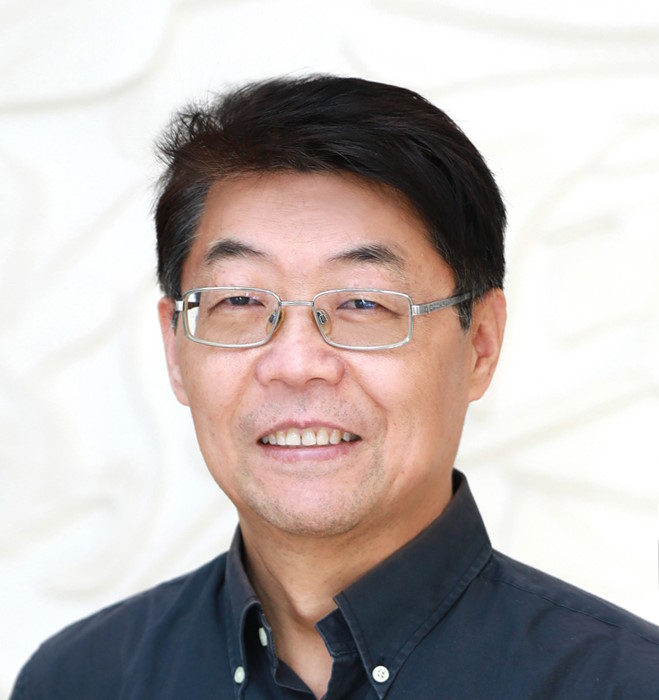Professor Haiteng Deng
Haiteng Deng, Ph.D. is a Professor at the School of Life Sciences, Tsinghua University, and Adjunct Professor at Rockefeller University with over 25 years of experience in proteomics, metabolomics, and chemical biology. He is a leading expert in mass spectrometry-based proteomics, having made pioneering contributions to understanding NAD metabolism, aging mechanisms, and redox regulation in human diseases.
As Professor at Tsinghua University since March 2011, Haiteng leads a research group focused on developing novel techniques in proteomics and metabolomics for investigating cellular mechanisms of aging and disease. His laboratory has made breakthrough discoveries in NAD metabolism, particularly in developing reduced nicotinamide mononucleotide (NMNH) as a potent NAD+ enhancer and characterizing its effects on cellular metabolism and aging.
The team has published extensively on how NAD precursors, such as NMN, can ameliorate age-associated organ dysfunction and restore cellular homeostasis. Read Reduced Nicotinamide Mononucleotide (NMNH) Potently Enhances NAD+, Suppresses Glycolysis, TCA Cycle and Cell Growth, and Nicotinamide Mononucleotide Administration Amends Protein Acetylome of Aged Mouse Liver.
Prior to his current position, Haiteng served as Research Associate Professor and Director of the Proteomics Resource Center at Rockefeller University from 2009 to 2011, where he continues to maintain an adjunct professorship. During his tenure at Rockefeller, he established comprehensive proteomics facilities and developed innovative mass spectrometry techniques for protein analysis. His work included pioneering methods for protein N-terminal identification through reductive glutaraldehydation, which has become a fundamental technique in proteomics research. Read Reductive Glutaraldehydation of Amine Groups for Identification of Protein N-termini.
Between 2004 and 2009, Haiteng served as Research Assistant Professor at Rockefeller University, where he developed quantitative proteomics approaches and contributed to understanding protein modifications in disease states. His earlier career included positions as Assistant Professor at Albert Einstein College of Medicine from 2001 to 2003, where he worked in the Department of Medicine studying cellular signaling pathways. He also held an Instructor position in the Department of Developmental & Molecular Biology at Albert Einstein College of Medicine from 1999 to 2001.
Haiteng’s research has significantly advanced our understanding of aging biomarkers and therapeutic targets. His team identified 27 potential renal aging biomarkers through comparative proteomics analysis, including phosphoenolpyruvate carboxykinase (Pck1) and uromodulin. They demonstrated that peroxisome deterioration might be a hallmark for renal aging and that NMN treatment can reverse age-associated proteostasis changes. Read Comparative proteomic analysis identifies biomarkers for renal aging and OLFR734 Mediates Glucose Metabolism as a Receptor of Asprosin.
His laboratory has also made important contributions to cancer research, identifying the role of heat shock protein 60 (HSP60) in multiple myeloma cell proliferation and characterizing metabolic reprogramming in various cancers. Read The 60‐kDa heat shock protein regulates energy rearrangement and protein synthesis to promote proliferation of multiple myeloma cells.
Throughout his career, Haiteng has published over 100 peer-reviewed research articles in prestigious journals including Cell Metabolism. Molecular and Cellular Proteomics, Journal of Proteome Research, Nature Communications. and Redox Biology.
His recent work on flavonoid compounds as senolytic agents has opened new avenues for aging intervention strategies. The discovery that 4,4’-dimethoxychalcone selectively eliminates senescent cells via activating ferritinophagy represents a potential breakthrough in developing therapies for age-related diseases. His research on CD38-mediated NAD depletion and its role in cellular metabolism has provided crucial insights into the molecular mechanisms of aging.
Read Flavonoid 4,4′-dimethoxychalcone selectively eliminates senescent cells via activating ferritinophagy and Oxidative degradation of dihydrofolate reductase increases CD38-mediated ferroptosis susceptibility.
Haiteng earned his Ph.D. in Chemistry from Pennsylvania State University in 1996, where he developed expertise in analytical chemistry and mass spectrometry. His dissertation work, titled Met-Cars and oxide clusters: Formation, structures, and reactivities, laid the foundation for his future contributions to proteomics methodology. He earned his Master of Science Degree in Chemistry from Wuhan University in 1988 and his Bachelor of Science degree in Chemistry from the same institution in 1985.
Following his doctoral studies, Haiteng completed postdoctoral training at the University of Alberta from May 1996 to December 1997, where he focused on protein chemistry and structural biology. He continued his postdoctoral research at Oak Ridge National Laboratory from January 1998 to December 1999, working on advanced mass spectrometry techniques for biological applications. This extensive training provided him with the multidisciplinary expertise that has characterized his research career.
Between 2008 and the present, Haiteng has served as Adjunct Faculty at New York University, where he contributes to graduate education in biochemistry and molecular biology. His educational contributions extend to mentoring numerous graduate students and postdoctoral fellows who have gone on to establish successful careers in academia and industry. He has also authored several book chapters, including contributions to handbooks on drug discovery and protein analysis techniques.
Haiteng’s research has been particularly impactful in the field of HIV/AIDS research, where he has characterized proteome changes in HIV-infected patients receiving antiretroviral therapy. His work has provided insights into immune reconstitution and identified potential targets to improve treatment outcomes. Read Profiling of proteome changes in plasma of HIV‐infected patients receiving antiretroviral therapy.
He has also contributed to understanding the mechanisms of kidney disease, identifying the differential expression of glycogen phosphorylases in renal cell carcinomas. Read The different expression of glycogen phosphorylases in renal clear cell renal carcinoma and chromophobe renal carcinoma.
His collaborative research extends to international projects that study protein interactions in nuclear organization and develop new cross-linking mass spectrometry techniques for mapping protein complexes. These collaborations have led to innovative approaches for understanding the hierarchically organized modules of protein interactions in the nucleus. Read Capturing the Hierarchically Assorted Modules of Protein Interaction in the Organized Nucleome.
Haiteng resides in Beijing, China, where he continues his research at Tsinghua University. His laboratory remains at the forefront of proteomics and metabolomics research, with ongoing projects investigating therapeutic approaches for aging-associated diseases and developing novel analytical techniques for biological mass spectrometry.
Visit his Tsinghua University Faculty Page, CSSB Profile, ResearchGate Profile, and ORCID Page.
